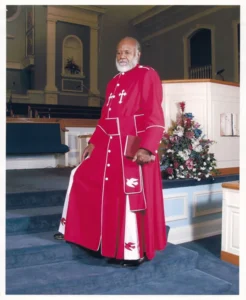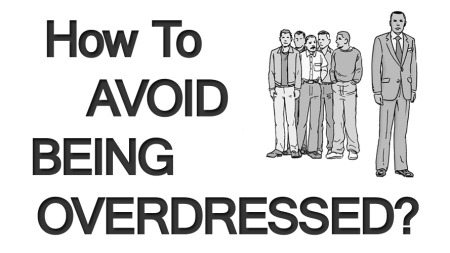Looking Like Your Audience
Looking Like Your Audience
We turn now from considering the use of humor in your sermons, as in these last few posts, to a consideration of something most preachers learn the hard way. Looking like your audience is important. If you don’t, they might tune you out when you preach.
 Let me put this in terms of something the apostle Paul said to the Corinthian Church. In chapter 9 of First Corinthians he said, “I have become all things to all people so that by all possible means I might save some. I do this for the sake of the gospel, that I might share in its blessing.”
Let me put this in terms of something the apostle Paul said to the Corinthian Church. In chapter 9 of First Corinthians he said, “I have become all things to all people so that by all possible means I might save some. I do this for the sake of the gospel, that I might share in its blessing.”
Paul’s point was that when he was trying to reach Jews, he emphasized his training as a Jew, as well as the life that he lived growing up as a Jew. But when was trying to reach Gentiles, he acted and lived like they do. He didn’t keep all the intricacies of the Jewish law, but emphasized the freedom that was available for everyone. His approach reflected his audience.
Application of Principal to Preaching
Looking like your audience will remove one potential barrier to people hearing your message. I know that this sounds trivial. Truth should transcend how we dress and how we talk, right? Yes, it should, but the reality is that if how we dress and how we talk would be a barrier to someone, why wouldn’t we make those minor changes?
Looking Like Your Audience Illustrated
I remember being in a worship service once where I experienced this. I lived in Southern California at the time. The overall character of that area was pretty casual, and I wouldn’t be surprised when someone showed up in shorts and a t-shirt during the warm summer.
 I was invited by a friend to his church when there was a celebration of the anniversary of him becoming pastor. The service was when I wasn’t scheduled to preach, so I eagerly accepted. I went dressed in a way that was consistent with our community. I had khaki pants and a button down shirt. When I looked around the audience, I felt just a little bit overdressed. There was a whole group of young men and women there who were in t-shirts and jeans. A few others had shorts on.
I was invited by a friend to his church when there was a celebration of the anniversary of him becoming pastor. The service was when I wasn’t scheduled to preach, so I eagerly accepted. I went dressed in a way that was consistent with our community. I had khaki pants and a button down shirt. When I looked around the audience, I felt just a little bit overdressed. There was a whole group of young men and women there who were in t-shirts and jeans. A few others had shorts on.
The guest preacher that evening was related to my friend. Imagine my shock when he came onto the stage to preach, dressed in a long, flowing cassock, with gold rings on several hands and chains of gold around his neck. It was surprising! It was shocking. And I found my interest in what he was going to share began to wane, thinking, “I don’t know this man at all, but I don’t think he understands me or my life.”
Applying the Principle to Your Preaching
There are some applications and challenges to this principle. First of all, this means you should dress like your audience. I once worked with a Director of Worship who had a principle for the many people who served in his area. He said you should dress one small step above your anticipated audience. In our church the dress was very casual, and so he asked men to come in some kind of khaki pants and a button down shirt. Women were coached about dress that didn’t look like the beach in Southern California, but would dress in a way that would make them look something like the audience.
Of course, there are limits to this.
When I preach at the Men’s Mission near my town, I don’t dress like a homeless person. But I don’t go there in a suit, either.
If I were to preach at the Cowboy Church, I wouldn’t dress like a cowboy, because that wouldn’t be me. I don’t even own cowboy boots.
However, if I am going to preach at a very formal church, where people come to church in suits, I’ll wear a suit.
Having said that, there are some cultures that expect the pastor to come in a robe or suit. If you preach there, live into the culture.
Thom Rainer, church consultant, reflects on this in a blog post entitled: Six Thoughts about Proper Pastoral Attire for Worship Services. Give it a look at this link.
We should also talk like our audience, using a vocabulary that they can relate to. We’ll reflect on that another time.
Conclusion
Looking like your audience is a good principle. Don’t put barriers to the gospel in front of people.



